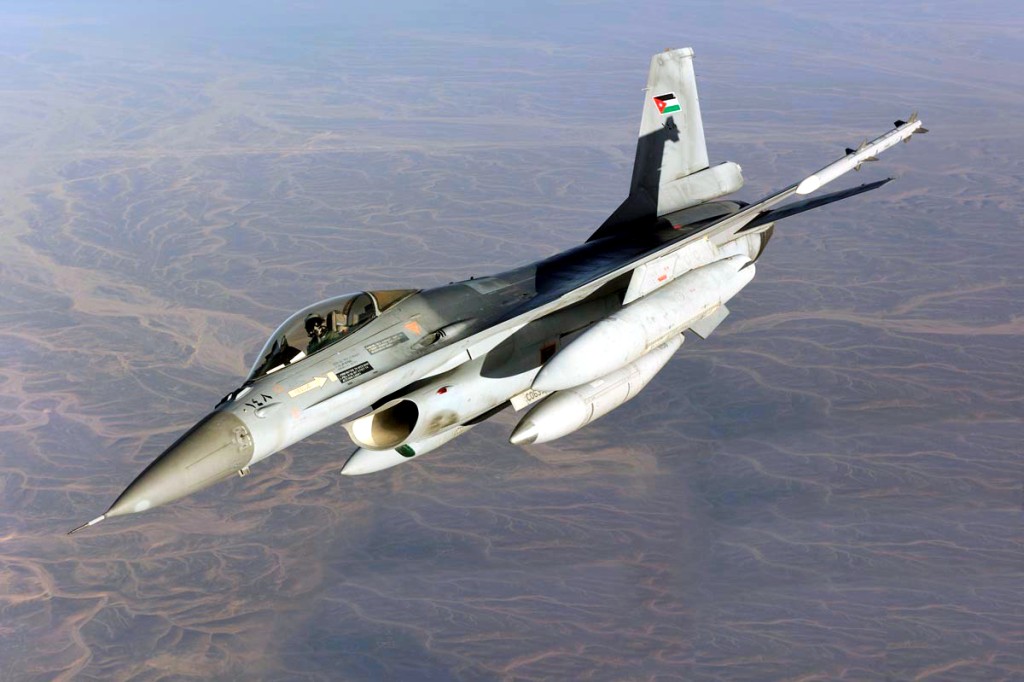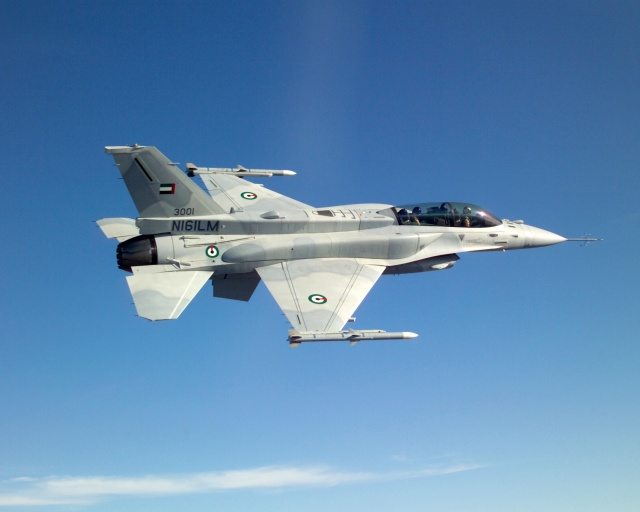Jordan announced Sunday it conducted dozens of air strikes on the Islamic State group that murdered one of its pilots, as part of an international assault Washington says is beginning to bite.
Air Force chief Major General Mansour al-Jobour said the kingdom had launched 56 air raids on IS since Thursday.
“On the first day of the campaign to avenge our airman Maaz al-Kassasbeh, 19 targets were destroyed, including training camps and equipment,” he told reporters.
Jordan has vowed to crush IS after the jihadists burned alive Kassasbeh, who was captured in December when his F-16 warplane went down in Syria.
Eighteen more targets including ammunition and fuel depots and logistics centers were hit on Friday.
On Saturday, 19 IS targets were destroyed, including barracks and residential centers.
“So far, the campaign has destroyed 20 percent of the fighting capabilities of Daesh,” he said using another name for IS which controls swathes of both Syria and Iraq.
Jordan is part of the US-led coalition of Arab and Western countries that has been carrying out air strikes against IS since September.
State media reported that a squadron of United Arab Emirates F-16 fighter jets arrived Sunday in Jordan escorted by pilots and technicians.
C-17 transporters and refuelling planes were part of the squadron sent on the orders of Abu Dhabi Crown Prince Mohammed bin Zayed al-Nahayan, the Petra news agency said.
Kobane villages retaken
US Secretary of State John Kerry said the aerial campaign on IS in Iraq and Syria was beginning to win back territory and deprive the jihadists of key funds.
There have been 2,000 air strikes on IS since the coalition’s formation in August, Kerry told the Munich Security Conference.
The air war had helped to retake some 700 square kilometers (270 square miles) of territory, or “one-fifth of the area they had in their control,” he said.
The top US diplomat did not specify whether the regained territory was in Iraq or Syria.
But he added the coalition had “deprived the militants of the use of 200 oil and gas facilities… disrupted their command structure… squeezed its finance and dispersed its personnel.”
The Syrian Observatory for Human Rights, a Britain-based monitoring group, said Sunday that Kurdish forces had retaken from IS more than a third of the villages around Kobane.
The Kurds recaptured Kobane on the border with Turkey from the jihadists on January 26, after four months of fierce fighting backed by Syrian rebels and coalition air strikes.
Jordan’s Foreign Minister Nasser Judeh told ABC television that while the bombing campaign had “degraded” IS capability, the group was still in control of “vast territory”.
‘Turning point’
Interior Minister Hussein Majali said in remarks published on Saturday that Kassasbeh’s gruesome murder by IS was a “turning point” in the kingdom’s fight against extremism.
“The day of the hero, martyr pilot’s assassination is a turning point in Jordan’s history in order to face this horrific crime that was committed by the cowardly terrorist organization,” he said.
Jobour said more than 7,000 IS militants had been killed since Jordan began participating in coalition air strikes.
Following Jordan’s intensified sorties, the group claimed US hostage Kayla Jean Mueller had been buried alive under rubble in its self-proclaimed capital of Raqa in Syria.
Mueller’s parents said they were hopeful the 26-year-old aid worker was still alive and appealed to IS to contact them in order to ensure her safe return.
On Sunday, US Secretary of Homeland Security Jeh Johnson said Washington was seeking clarification on Mueller’s fate.
“We’re learning as much as we can as quickly as we can about Ms. Mueller’s situation,” he told CNN. “Our thoughts, our prayers are with her family right now.”
Also on Sunday, the Lebanese army received a shipment of US weapons worth $25 million to help fight jihadists who have staged incursions from Syria.










